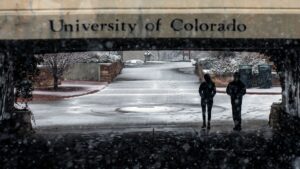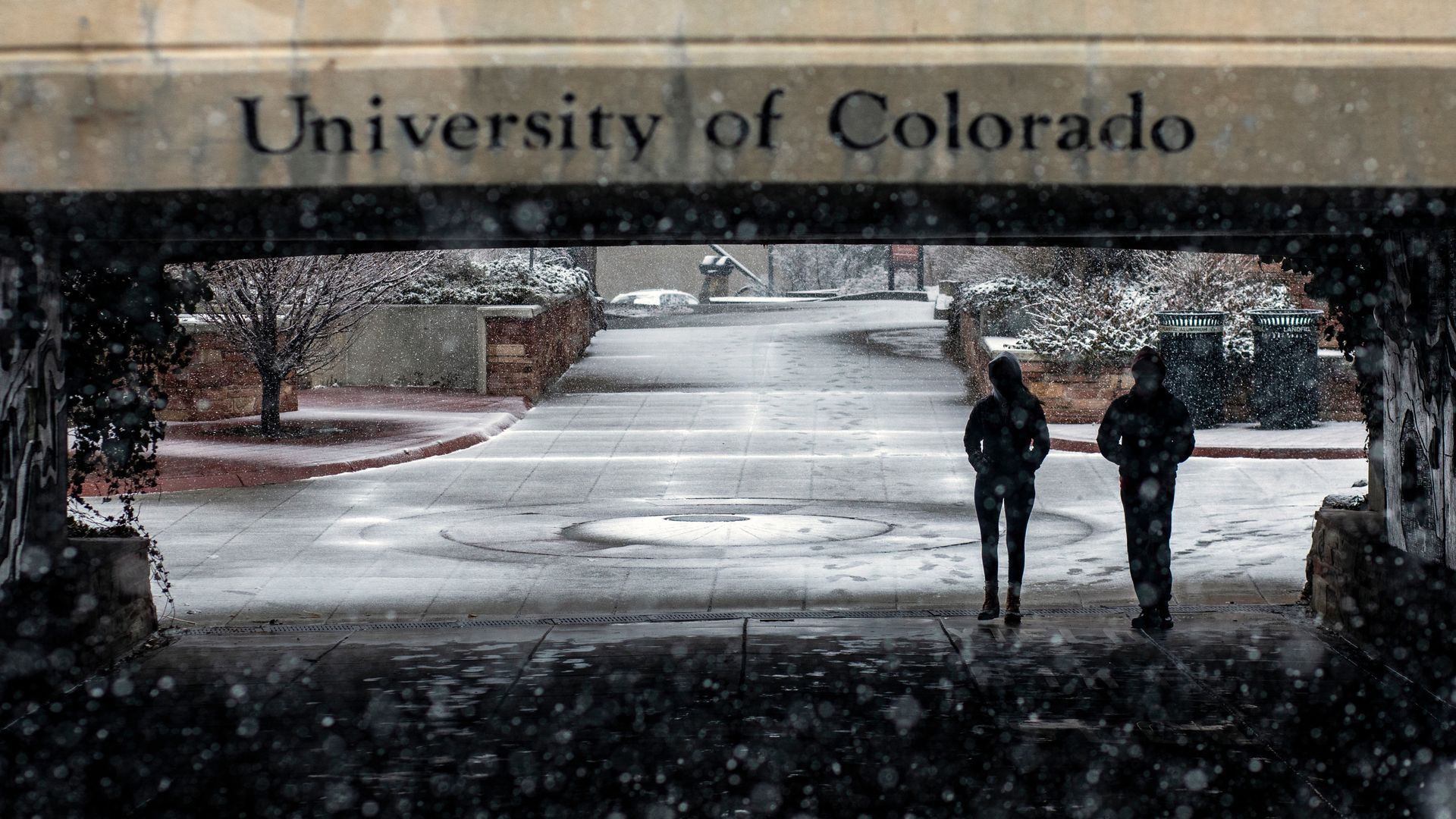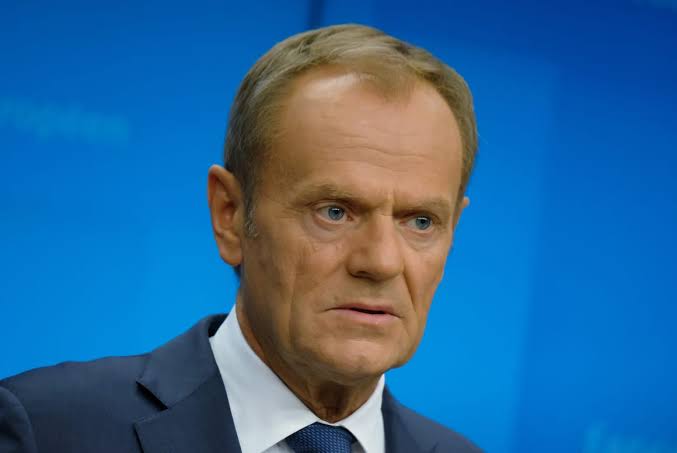Trump administration revokes visas for CSU, CU students
The Trump administration has revoked the visas for 10 international students at Colorado’s largest public universities.
The big picture: Six international students at Colorado State University and four students at two University of Colorado campuses were affected by the visa revocations, per school officials and news reports on Wednesday.
The F-1 visas were revoked by the U.S. Department of Homeland Security, reports 9News. Why it matters: The Trump administration’s effort targeting foreign college students as part of its immigration crackdown has now reached Colorado schools.
State of play: The administration appears to be targeting college students sharing pro-Palestinian views — though no details about the 10 local students or their political affiliations were immediately available.
Between the lines: CSU in a statement said it would not be identifying the students due to privacy reasons. It urged students affected to contact their country’s respective embassies.
“Please know that CSU deeply values our international student population and is committed to supporting you to the best of our abilities,” a statement from the university reads.
Context: The four CU students impacted were at the Boulder and Colorado Springs campuses, Denver7 reports.
—

Trump Administration Revokes Visas for Colorado Students Amid Political Backlash
Boulder, CO — April 6, 2025
In a move that has sparked national controversy and local outrage, the Trump administration has revoked the visas of 10 international students attending Colorado’s largest public universities—Colorado State University (CSU) and the University of Colorado (CU) system. The decision, which has not yet been fully explained by federal authorities, has raised concerns about civil liberties, immigration policy, and the growing tensions surrounding pro-Palestinian activism on college campuses.
According to university officials, six of the students were enrolled at Colorado State University in Fort Collins, while the remaining four were students at the University of Colorado’s Boulder and Colorado Springs campuses. Most of the students were reportedly in good academic standing and actively involved in campus organizations.
A Sudden and Mysterious Revocation
The revocation orders arrived suddenly last week, delivered via email and courier from the Department of Homeland Security. Students were given 48 hours to leave the country or face detention and removal proceedings. Many of the students were caught off guard, some even in the middle of midterm exams or ongoing research projects.
“It felt like a nightmare,” said one CU Boulder student from Lebanon who requested anonymity for fear of retaliation. “One moment I was planning my summer research fellowship, and the next I was told I had to pack up and leave the country immediately. No explanation, no hearing—just gone.”
When pressed, federal officials cited “national security concerns” and “public safety” as general justifications but did not provide individualized reasoning. The lack of transparency has intensified criticism from civil rights groups and immigration attorneys.
Alleged Link to Pro-Palestinian Activism
While no official statements have confirmed it, several sources inside the universities suggest that the visa revocations are related to students’ participation in campus protests against Israel’s ongoing military operations in Gaza. This theory aligns with recent comments by senior administration officials, who have described some campus protests as “breeding grounds for extremist ideology.”
Over the past few months, both CSU and CU Boulder have seen peaceful demonstrations organized by Students for Justice in Palestine (SJP) and allied groups, calling for an end to U.S. military aid to Israel and divestment from companies involved in weapons manufacturing. Some of the affected students are known members of these groups.
“These students were exercising their constitutional rights—peacefully assembling, engaging in political speech,” said Laura Kendrick, an immigration lawyer based in Denver. “To strip them of their visas without due process suggests a weaponization of immigration law for political ends.”
The American Civil Liberties Union (ACLU) has announced its intent to file a lawsuit challenging the revocations, arguing that the move violates the First and Fifth Amendments.
University Response
In coordinated statements, both CSU and the University of Colorado system expressed concern over the federal action and its impact on international students.
“We are deeply troubled by the abrupt and unexplained revocation of visas affecting our students,” said Todd Saliman, president of the University of Colorado. “Our international students are a vital part of our academic and cultural community. We are working closely with legal counsel and federal agencies to gather more information and provide support.”
CSU President Amy Parsons issued a similar message: “The lack of clarity and communication from federal authorities is alarming. We are advocating for transparency and due process for our students.”
Both institutions have encouraged affected students to contact their embassies, seek legal counsel, and work through their respective international student offices.
National Repercussions
The incident is not isolated. Similar visa revocations have been reported at other universities, including the University of Michigan and the University of California system, pointing to a broader federal effort to monitor and potentially penalize foreign students involved in political activism.
Some members of Congress have voiced support for the administration’s actions, framing it as a national security issue.
“Foreign nationals do not have an unconditional right to remain in the U.S., especially if they are promoting extremist or anti-American views,” said Rep. Tom McClintock (R-CA), a vocal Trump ally. “We need to protect our universities from becoming battlegrounds for foreign propaganda.”
But others see it as an overreach.
“This is an egregious abuse of power and a chilling message to all students—foreign or domestic—that political dissent will not be tolerated,” said Sen. Elizabeth Warren (D-MA). “The administration is criminalizing free speech under the guise of immigration enforcement.”
Student Voices and Community Support
On the CU Boulder campus, student organizations and faculty have rallied in support of the affected students. A protest held on April 4 drew over 1,500 attendees, including professors, alumni, and community members. Chants of “Education, not deportation!” echoed across Norlin Quad.
“My classmates are being targeted for speaking out against injustice,” said Priya Chatterjee, a junior majoring in political science. “This is bigger than visas—this is about the soul of our democracy.”
Several faculty members have launched a petition demanding the reinstatement of the students’ visas, which has already gathered over 12,000 signatures.
In Fort Collins, CSU students organized a candlelight vigil to honor their peers and raise awareness of the broader implications of the policy shift.
Legal Challenges on the Horizon
The legal path forward is murky. Visa holders typically have limited rights in immigration proceedings, and national security exemptions allow the government significant discretion. However, legal experts believe there is a strong case to be made under constitutional grounds if the revocations are found to be politically motivated.
“This isn’t just about immigration—it’s about equal protection under the law,” said Kendrick, the immigration lawyer. “If these students were singled out based on their political views, we’re looking at a major constitutional violation.”
The Department of Homeland Security has yet to comment publicly, and the White House has remained largely silent except for a brief press release reiterating the administration’s commitment to “preserving the integrity of our immigration system and safeguarding national interests.”
What Comes Next?
As students scramble to figure out their futures—some relocating to Canada or returning to their home countries—the universities are bracing for further fallout.
Meanwhile, student activists have vowed not to be silenced.
“We won’t back down,” said a CU Boulder graduate student who had helped organize multiple protests. “If they can revoke our classmates’ visas today, what’s stopping them from revoking our speech tomorrow?”
For now, the international students at CSU and CU remain caught in legal limbo, their academic careers and personal lives upended by an increasingly politicized immigration landscape.





